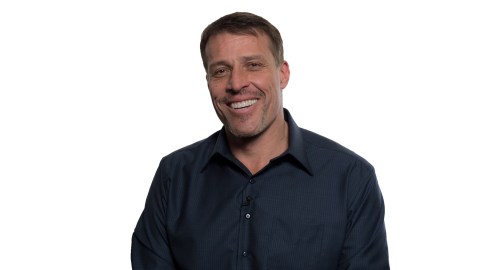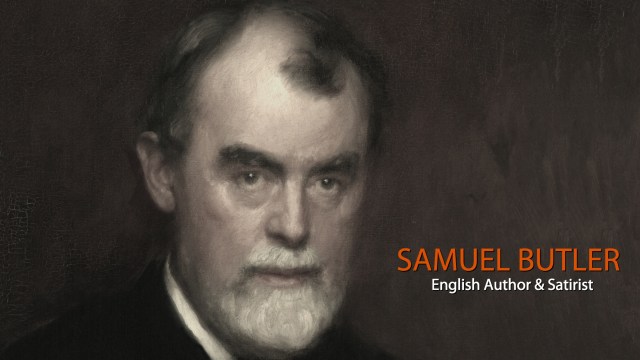Getting Past Your Fear of Financial Scarcity, with Tony Robbins

Tony Robbins‘ reputation as the planet’s most successful and ubiquitous self-help expert certainly precedes him, which is why it may be surprising that his latest book, Money: Master the Game, is his first in twenty years. The acclaimed life coach recently visited Big Think to discuss the new book, explain why his advice will help readers overcome financial problems, and share a few tales from his younger days about what money means to him.
You don't become an expert on overcoming personal strife without experiencing your own set of trials. Robbins is no exception to this axiom. If you watch the clip above, he focuses on a couple anecdotes from when he was a young man growing up in Southern California. Despite having been his senior class president and a bright student, Robbins never attended college. He was the product of a broken and abusive home. He grew up poor and worked odd jobs to make ends meet for himself and his siblings. These factors wore him down emotionally. What drove him out from his despair was an introspective realization:
"I hit this tipping point inside and I don’t even know what triggered it but I got really emotional. I literally pulled off the side of the freeway and I’ve always had these written journals and I still have the journal to this day and I wrote in giant letters the secret to living is giving. And then I started crying. And it was one of those beautiful moments and it just like I realized I was so focused on what I was getting I was not focused on what I was giving enough."
He tells another story about eating at an all-you-can-eat Mexican restaurant to get the biggest bang for his buck. Even though Robbins was down to his last $15, something overcame him and he decided to give the rest of his money to an 11-year-old boy so he could pay for lunch with his mother. The act of giving empowered Robbins. He went home to devise a plan to pull himself out from his rut. The next day, he opened an envelope in the mail and found a $1000 check (plus a little extra) from someone he had loaned money to. Basic logic posits that there's no way the two acts -- Robbins' giving and Robbins' receiving -- could ever be related. But there was something so perfect in the coincidence that Robbins couldn't deny that perhaps there was a greater power at work.
"I looked at this thing and thought to myself, you know, what does this mean? Why did this happen? I don’t know if it’s true but I chose it to mean that money came because I did the right thing. Because I didn’t operate from scarcity... I just did what was right. And I can remember to this day so vividly like it was yesterday because that’s the day I became a wealthy man. That’s the day that scarcity ended in me."
The ultimate takeaway from Robbins' stories is that much of our emotional duress when it comes to money stems from fear: fear of not having enough, fear of money defining you, fear of losing what you already have, etc. As with most self-help lessons, Robbins' advice here isn't so much a way to make money but rather to shift the way you perceive money. Wealth is a state of being that has as much to do with the spiritual as it does the financial. And for Robbins, wealth is just as much about what you give as it is what you have:
"What I want to do is focus instead on being a blessing in people’s lives. That if I can find a way every day to do something to add more value for other people then I wouldn’t have to worry about anything. Just like you don’t worry about taking a breath whether oxygen is going to be there. You don’t ask the question, you know it’s going to be there."
What's your take on Robbins' philosophy? Have you ever felt the sort of spiritual elation he describes? Let us know down below in the comments.
--





